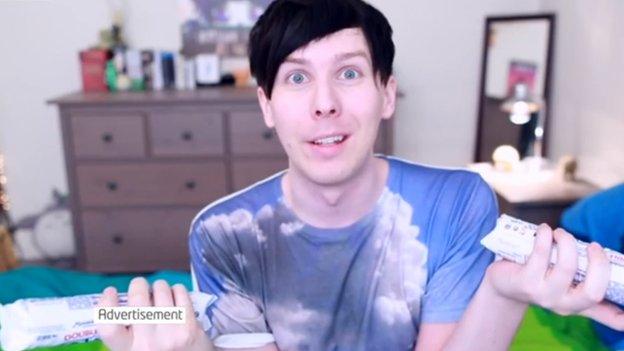The UK YouTube stars with fans around the world
- Published
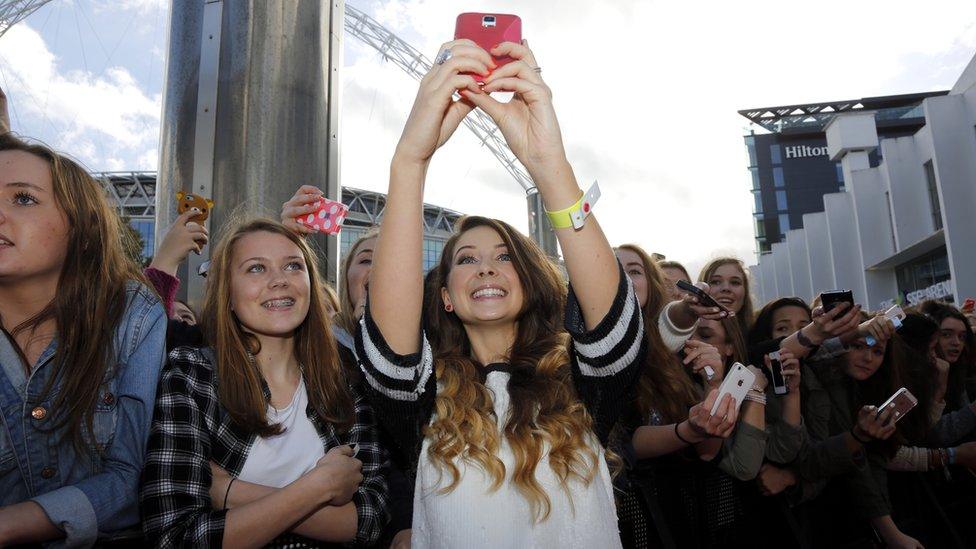
YouTube stars like Zoe Sugg, known as Zoella, are watched by millions of people around the world
The UK's most influential YouTube creators have been named in a top 10 list produced for the BBC. How do self-made stars like these become famous around the world? And are they taking over from traditional celebrities?
Becky Sheeran was shopping four years ago when a girl she had never met walked up to her, asked for a hug, then started crying.
Becky was working as a television journalist at the time, but the girl didn't recognise her from TV - she recognised her from videos she recorded in her spare time and uploaded to YouTube.
"I will never forget it," says the 27-year-old, from Nottinghamshire.
"She knew everything about my life, my family, my favourite foundation, my favourite clothes.
"It was just amazing and ever since then it's carried on happening."
Becky Sheeran makes YouTube videos about beauty and her everyday life
Becky, who started making videos for her TalkBeckyTalk, external channel in 2009, eventually left TV to concentrate on YouTube full-time.
"Now [being recognised] happens most times I go into town, especially if I'm in a shopping centre, it always happens on a Saturday because there are always women there," she says.
"Really randomly I was skiing last Christmas in Switzerland and I was up the highest mountain in this tiny log cabin and two twin girls came up to my sister and I."
KSI
These experiences may sound unusual, but there are literally thousands of YouTube creators like Becky who have huge audiences all over the world.
Data analysed by video intelligence company Tubular Labs shows that 17,000 creators have more than 100,000 subscribers - and 1,275 of these creators are registered in the UK.
Incredibly, 1,477 YouTube creators have more than a million subscribers, and 147 of these creators are registered in the UK.

The top 10
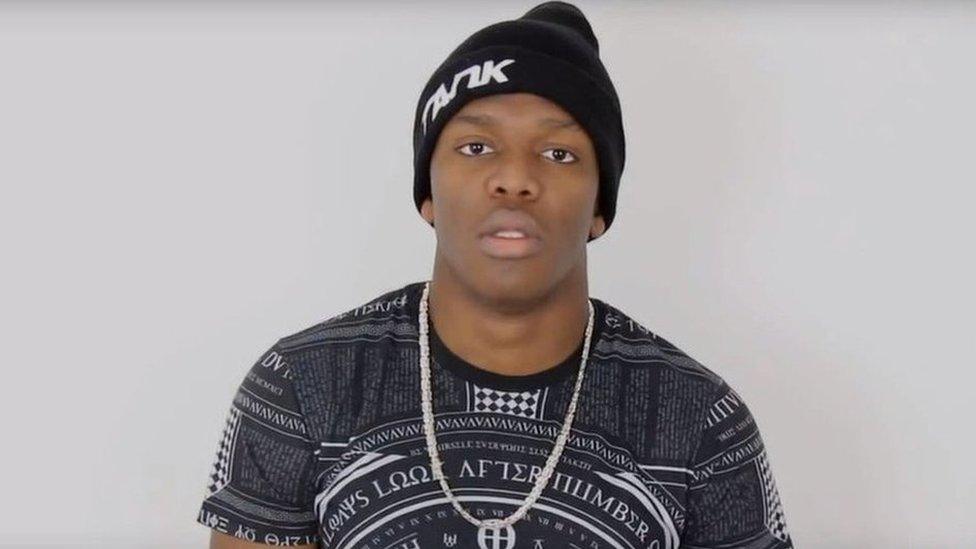
Olajide "JJ" Olatunji, known as KSI, has been named the most influential YouTube creator registered in the UK
Tubular Labs has created a list of the top 10 most influential UK creators for the BBC.
At the very top is Olajide "JJ" Olatunji, who dropped out of college, but has made $4.5m (£2.9m) in the past year, according to a Forbes list of the world's highest-paid YouTube stars, external.
The 22-year-old, from Watford, has more than 10 million subscribers on his KSI YouTube channel and a "social reach" of 17.4 million when other social media platforms are taken into account.
He is best known for filming himself playing computer games while commentating on them, but he also makes comedy videos and more typical vlogs.
His vlogs include one where he decided to dye his hair blond and another in which he filmed himself for a week to give his viewers a chance to see what he does when he's not posting YouTube videos.
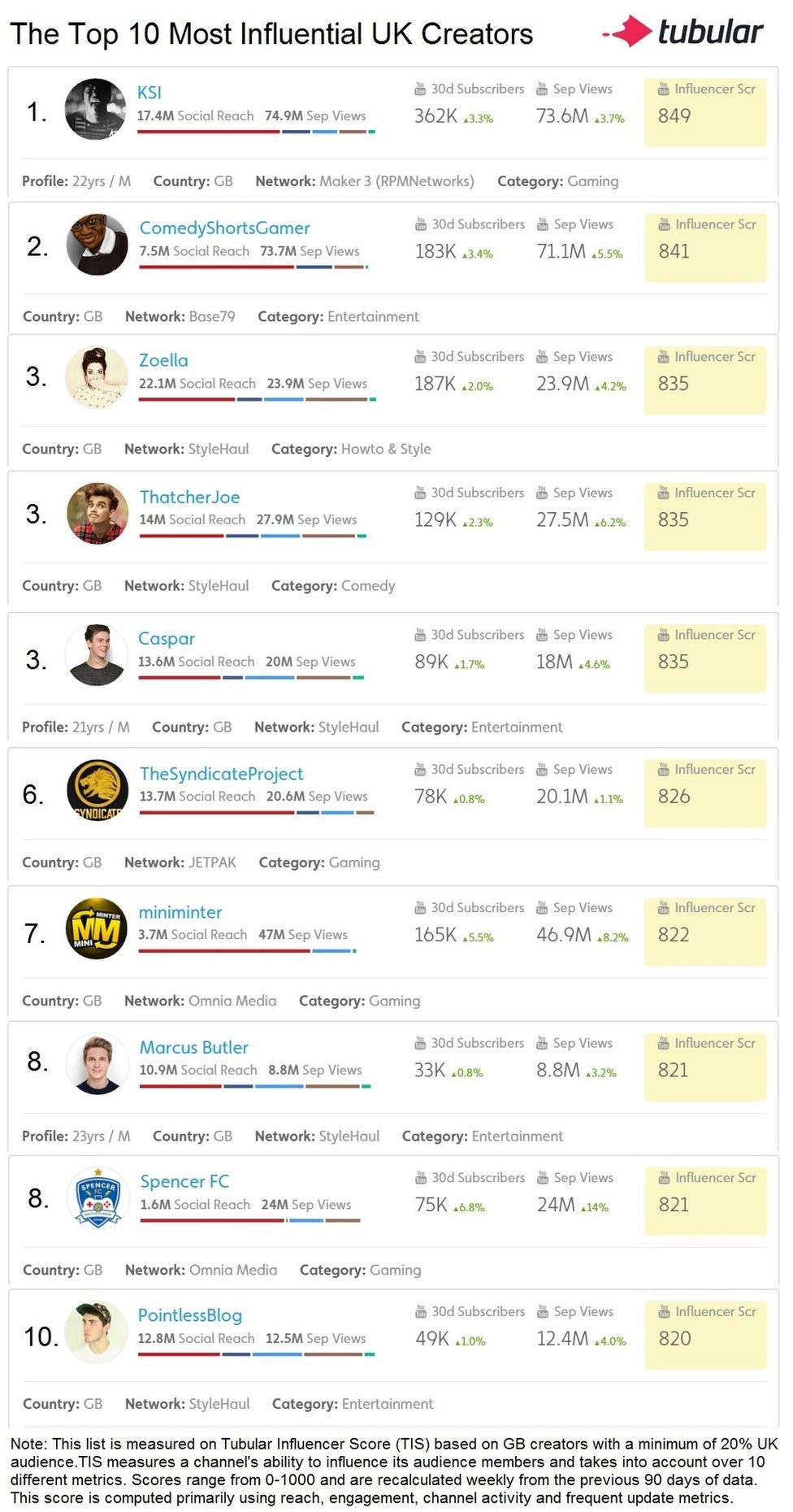
However, he has been criticised for the content of some of his videos, external, with claims that he propagates misogynistic views of women, external and trivialises rape.
He was also accused of sexually harassing attendees of Eurogamer 2012, a video games showcase.
In a statement in response to the criticism, external, his manager said he has "been actively avoiding certain content seen in the distant past and wants to be judged on the great content and value he gives to brands and partners, without controversy".
KSI's brother Deji Olatunji, known as ComedyShortsGamer, external, is in second place on the list.
His videos appear to concentrate more on comedy than gaming, with one of his most popular being a prank where he told his mother he had made a girl pregnant, external.
The hugely popular gamer and comedian Felix Kjellberg, known to fans as PewDiePie, external, does not appear on the list because he is registered as a Swedish creator, although he lives in Brighton.

A global audience
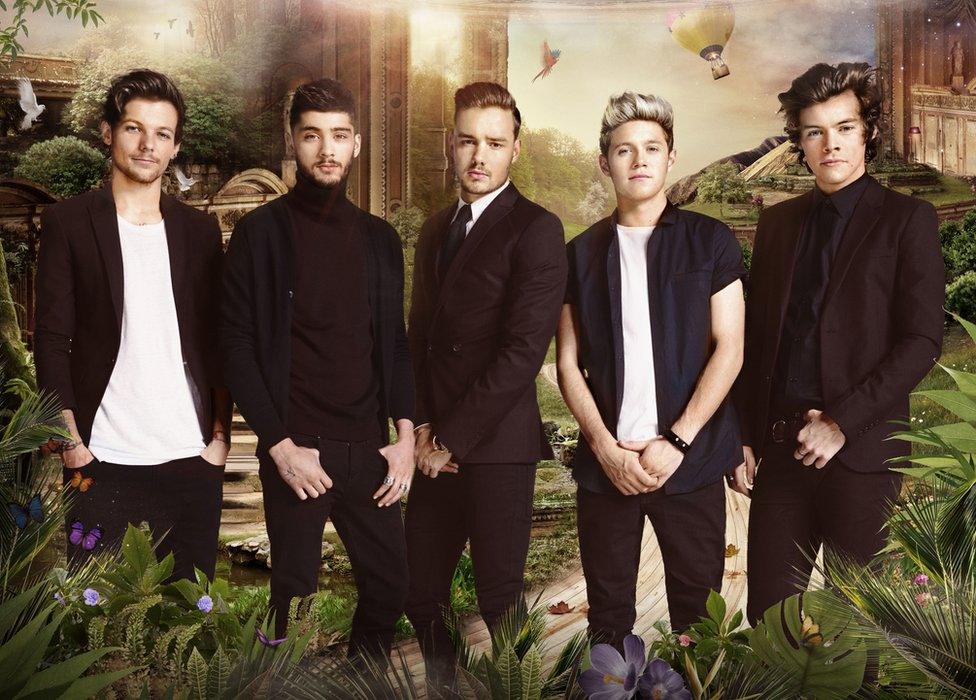
Denis Crushell thinks the "One Direction effect" has made young male YouTube creators from the UK more popular
"What is amazing specifically about the UK creators is that their content travels so well internationally," says Denis Crushell, vice president of Europe for Tubular Labs.
"They are probably exporting this content to hundreds of countries around the world, which if you think about a TV show and more traditional media brands, it would be quite hard to distribute to hundreds of countries pretty easily."
In fact, only 34% of the audience for the top 10 UK creators is based in the UK, while 27% of the audience is based in the US.
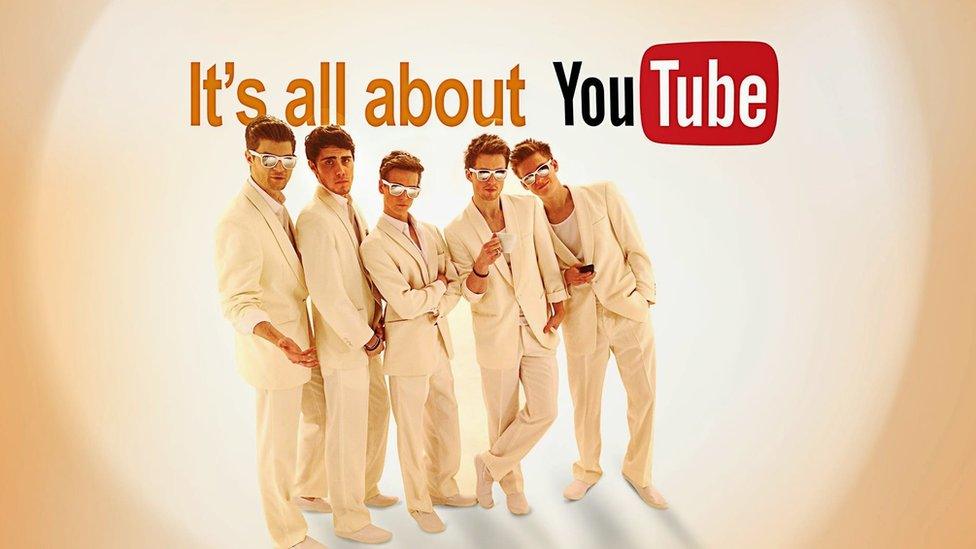
Five young male YouTubers recorded a boy band style song and video for Comic Relief
Mr Crushell thinks this is partly because the UK and US share the same language.
"What you see in countries around Europe, like Germany and France, is their content doesn't travel as well because of the language," he says.
He also thinks there has been a "One Direction effect", where people who are fans of the English-Irish boy band favour young male YouTube creators from the UK.
"All of these creators getting mass audiences around the world has only really been happening in the last four or five years, so it's kind of a trend that's kept on par with when One Direction have been pretty popular," says Mr Crushell.

YouTube as a career
YouTubers like Zoe Sugg and her brother Joe Sugg often collaborate with each other
In joint third place are two other siblings - Zoe Sugg, known as Zoella, external, and Joe Sugg, known as ThatcherJoe, external - along with Joe's flatmate Caspar Lee, known simply as Caspar, external.
They all film a mix of videos, with some of the most popular being one where Zoe shows people how she applies her makeup every day, external, Joe plays pranks on Caspar, external in the flat they share, and Caspar introduces people to his girlfriend, external.
All three are managed by Gleam Futures, a company founded in 2010 to manage what it calls "social talent".
Its MD and founder, Dominic Smales, worked in newspapers and radio before becoming fascinated by social media.
"No-one was calling them talent at that time and I think we were the first people to coin the phrase social talent, and it grew from there really," says Mr Smales.
"We now have 28 talent on the roster that will probably drive in the region of four billion views this year on YouTube alone."
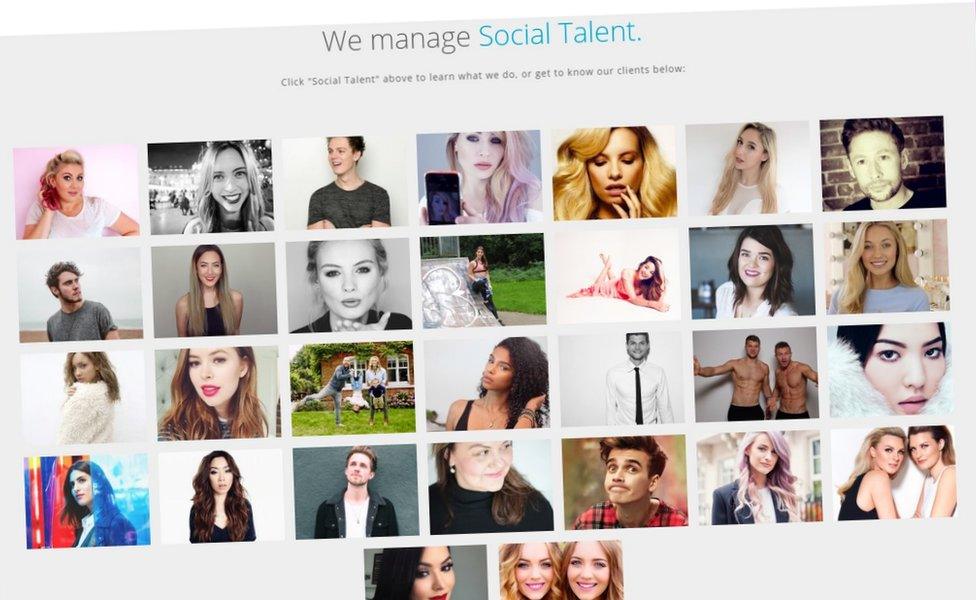
Gleam Futures was founded in 2010 to manage what it calls "social talent" - people who have huge audiences on social media
So why does Mr Smales think Zoe, Joe and Caspar have been so successful?
"All of them have the ability to connect and entertain global audiences who feel like they have a real relationship with those guys, and they do," he says.
"They are who they are and there are no skeletons in the closet and I think people feel like these are people just like me.
"I relate to them as my friend rather than being an untouchable character on a big screen."

Zoe Sugg and Alfie Deyes, known collectively as Zalfie, have their own wax figures at Madame Tussauds in London
Zoe has talked openly about having an anxiety disorder and panic attacks, external, so it's difficult to imagine her being the type of person to go to stage school or become a TV presenter.
But YouTube has enabled her to become so famous there are now Madame Tussauds wax figures of her and boyfriend Alfie Deyes - who is also a YouTuber and appears at number 10 in the influencers list.
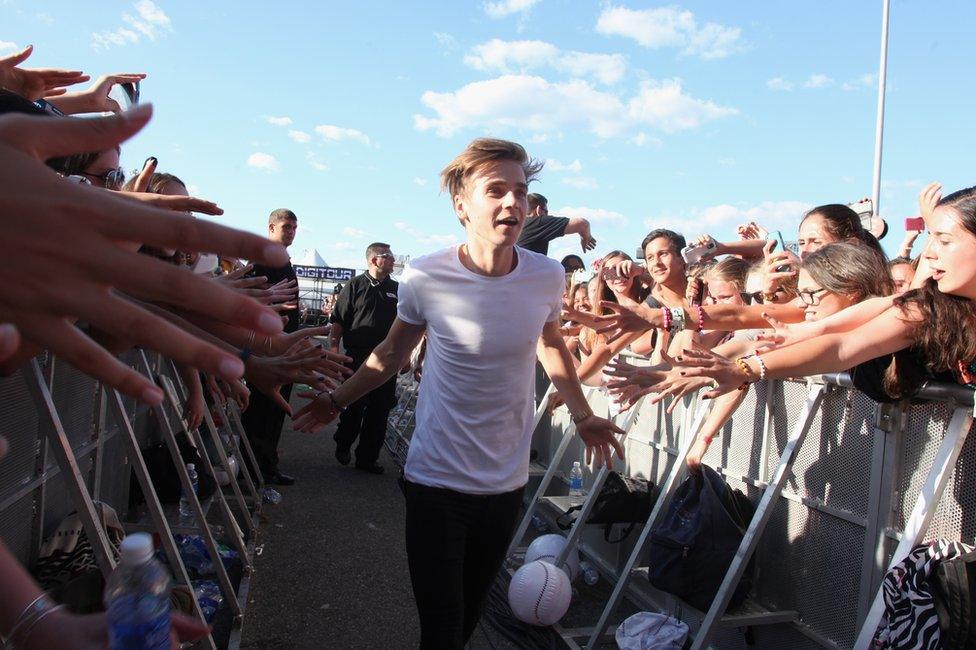
YouTuber Joe Sugg, shown here at a DigiFest event in New York, has fans around the world
Mr Smales thinks people who find fame through YouTube are often very different from traditional celebrities.
"I think the major differences are that a lot of our talent set out on this journey with fame not being the goal," he says.
"Our talent, they are not so much performers but they are internet entrepreneurs I guess."
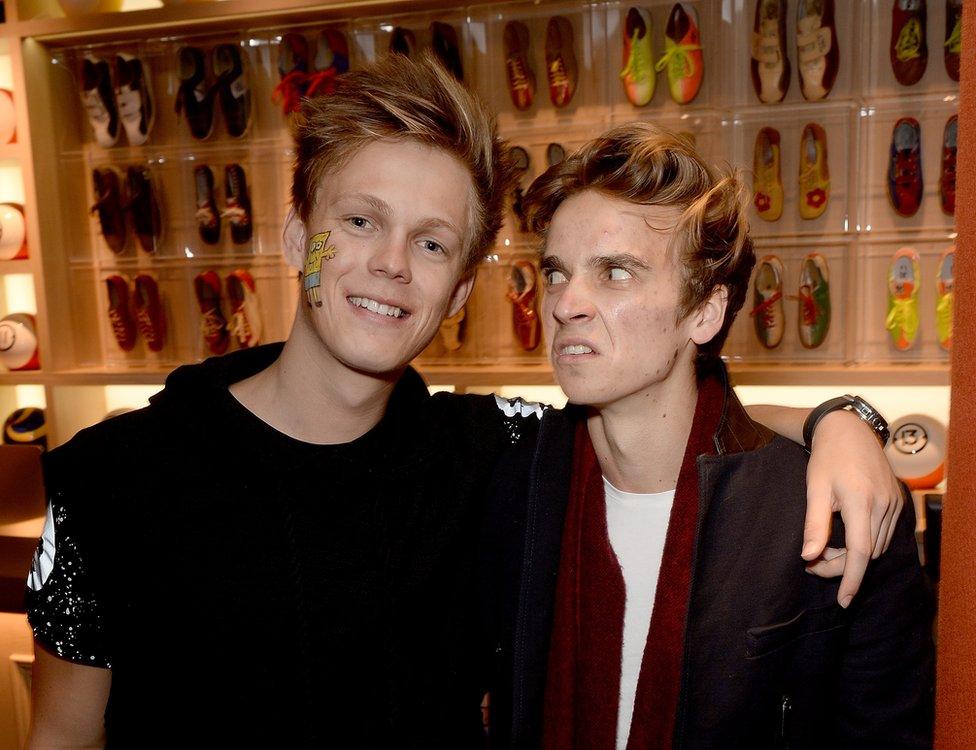
YouTubers like Caspar Lee and Joe Sugg get invited to film screenings, like this one for The Spongebob Movie: Sponge Out of Water
It might look easy to make a living by making YouTube videos, but Mr Smales says this is a serious misconception.
"It really isn't that easy and it's very, very hard work and all of our talent work very hard at making a career out of it," he says.
So how do YouTube creators make money, and how much can they expect to earn?
Mr Smales says they get a "small percentage" of advertising revenue but "it's not until you get a really big audience that you can start being able to pay the bills with it".
There are other opportunities to make money, though, such as being sponsored to promote products in videos, or being paid for work outside of YouTube - such as Zoe's record-breaking novel, external, Girl Online.

'Cashing in' - and criticism
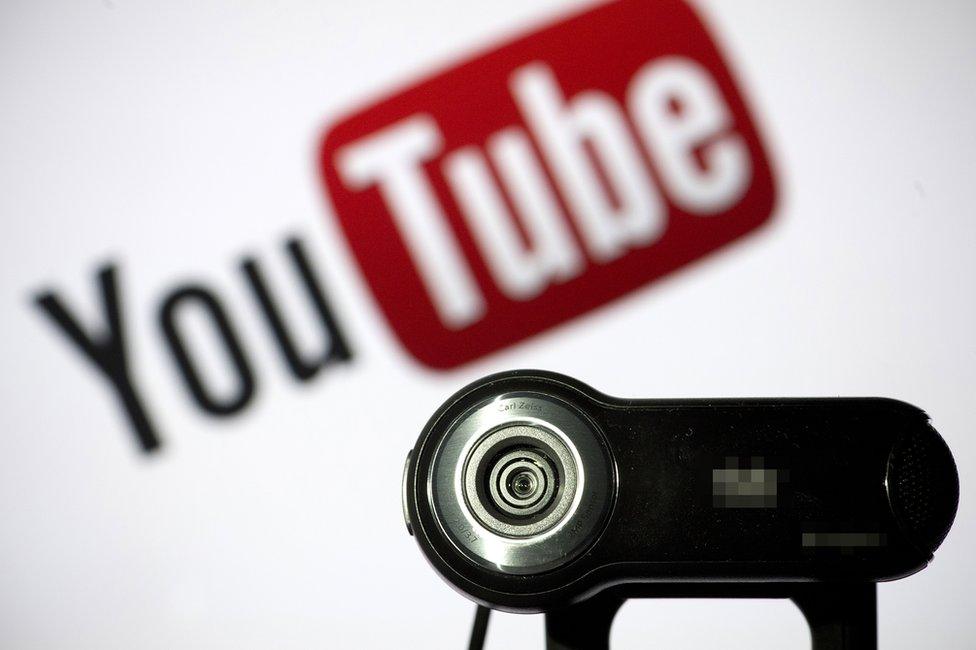
Alex Brinnand from TenEighty magazine says a lot of young people see YouTube as a glamorous job
YouTubers will "never, ever discuss the numbers they are making with you", according to Alex Brinnand, co-editor of TenEighty, a magazine about vloggers and the internet.
"It's not the done thing, and it's also against YouTube's guidelines to talk about advertising in particular and the finances behind that," he says.
"But we can all be assured that there are more than hundreds of YouTubers out there that are earning six-figure, if not seven-figure, salaries from being on YouTube and it only seems to be growing.
"As more advertisers and more brands become interested in them, these YouTubers are really setting themselves up to cash in on this deal."
Some YouTubers have been criticised for not making it clear when videos are sponsored, and the Committee of Advertising Practice has issued its first guidance since a landmark Advertising Standards Authority ruling last year.
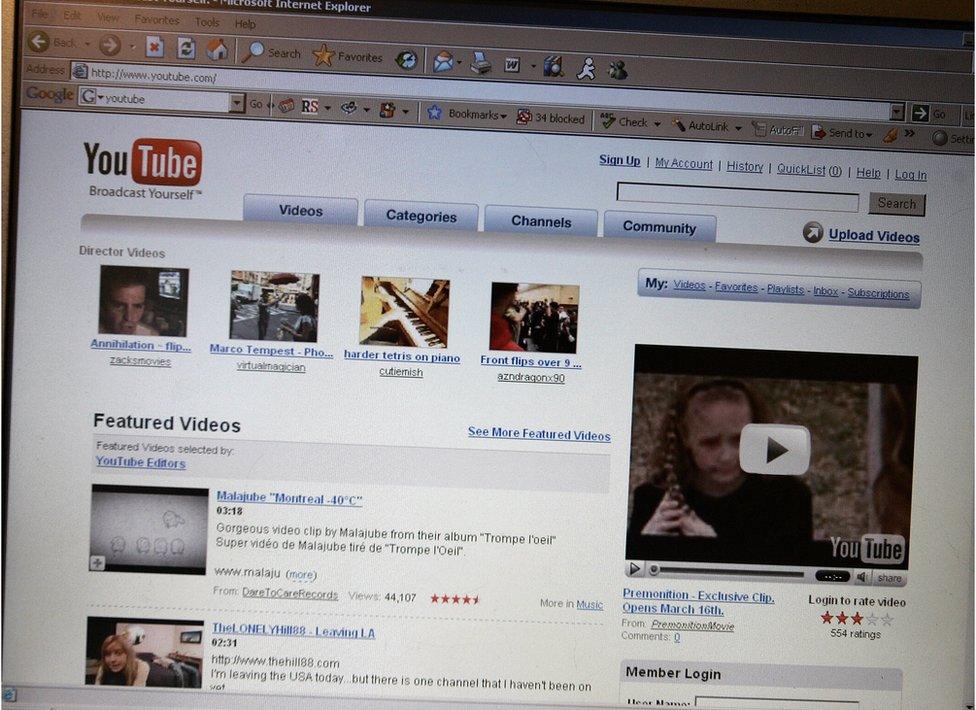
Alex Brinnand, who started making YouTube videos in 2007, said the majority of people did not see it as a business then
"The majority of us started doing it as people doing it for fun and we never saw it as a business thing at all," says Mr Brinnand, who has been a YouTuber himself since 2007.
"So being thrown in front of brands and advertisers and being offered these crazy deals is something that a lot of YouTubers are having to learn on their feet and as they go."
As more people realise that YouTube can become a career, Mr Brinnand believes the type of people starting channels is changing.
"A lot of young people do see YouTube as a very glamorous job, if you can call it that, and that is because the majority of what audiences see is only a snippet of people's day," he says.
"I think they like the idea of it but I'm not sure they would be comfortable doing it day in day out for years as these established YouTubers have done."

YouTube vs television

Zoe Sugg, known as Zoella, was a celebrity contestant on TV show the Great Comic Relief Bake Off
Stars from social media and traditional media are increasingly crossing over.
For example, Zoe Sugg was a celebrity contestant on TV show the Great Comic Relief Bake Off, while TV chef Jamie Oliver has several YouTube channels.
"We are now seeing more and more YouTube stars levelling or surpassing mainstream celebrities," says Mr Brinnand.
"When we look at TV or even magazines we are now beginning to see these YouTube stars alongside the pop stars and the TV stars.
"It's really changing the face of the media industry and what we know as celebrity."

Jamie Oliver, who became famous on television as the Naked Chef, now has several YouTube channels
Denis Crushel has similar views.
"You see people like Jamie Oliver create a big YouTube channel where he realises that it's a big opportunity to distribute his content and his name and everything else on a global platform," he says.
"People's habits are changing and not only for younger audiences.
"I think right now TV is still so large [but] a lot of that viewing habit that happens on TV will be moving online, whether it's YouTube or other video platforms that gain big audiences that's yet to be seen."

Vlogger Becky Sheeran said people watch YouTube for content they cannot get on television
Becky Sheeran thinks there will always be space for television.
"It's not that television is dying, I read things like this all the time and I don't think that's true," she says.
"I think the online world is completely in harmony with it because you turn to television for the most amazing content and you turn to television for quality because there's undeniable quality in a television programme.
"What people are turning to YouTube for is alternative, they are turning to YouTube for stuff that they cannot get on television."
Dominic Smales thinks people will still watch television in future, but it won't necessarily be transmitted live into people's homes.
"Everything is heading towards coming down an internet pipe, even though it will still be your TV or your screen that's in your living room that you might consume a lot of content on," he says.
"This is only going to grow. It's a seismic shift in the way that generations consume media and celebrity."
- Published19 August 2015
